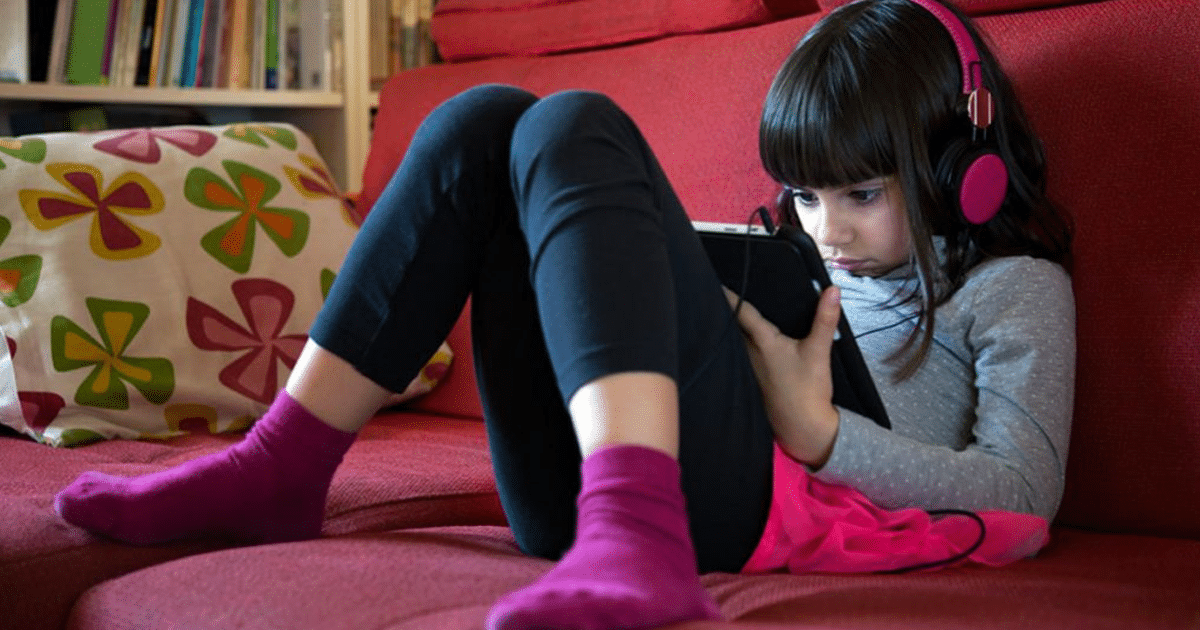“Difficulties with attention? Yes she does, but not all the time. She can pay attention to her tablet for hours” – are the words we often hear from parents who visit our clinic. These parents are not strangers to the mesmerizing power of tablets, which seem to draw the attention of children like moths to their iridescent glow. Many have experienced the profound ability that tablets have to calm fussing babies, enrapture busy toddlers and entertain children and teens who otherwise can’t seem to focus for long enough to finish their math homework. But what is the nature of the power that these tablets seem to wield on children’s attention? And what is its relationship to ADHD?
Those who are reading this are likely from a generation when the mode of play was tinker toys rather than tablets. The launch of the first ipad was in 2010, meaning that these devices, Ontario’s most popular hand-held object next to a Tim Horton’s double-double, are also younger than the average child we see at our clinic! Because of their newness, the literature on these devices and their impact on ADHD is scant, often leaving more questions than answers. But this is not to say that we should not be thoughtful while raising the first tablet-fluent generation of youngsters.
The trouble with the short time that tablets have been available is that we simply don’t know much about their impact – or the relationship between screen time and ADHD – yet. There may be a relationship between dopamine, a brain chemical that tends to be low in ADHD, which is boosted when using interactive media such as tablet games. Another theory is that children with ADHD are attracted to fast-paced shows and games because there are few gaps for them to lose focus.
Canadian Paediatric Society recommends no screen-based activity for children under the age of two, and recommends limiting screen use to one to two hours for older children. Dmitri Christakis, a paediatrician who researches children’s exposure to screen time, points out that there are two real concerns with screen time. One is that fast-paced shows (with quick scene changes, flashing lights, music) can overstimulate the developing brain. A second concern is that the time spent in front of the screen is time not spent doing other things critical for a developing brain.
Examples of things kids might miss out on if they’re parked in front of a screen are activities like interacting with caregivers, peers, free play, and exercise. Child-driven free play – or play which is unstructured by adults, is essential for the child’s emotion regulation, cognitive development, school readiness and to pursue their interests. Other research shows that interactions with caregivers is key for learning healthy emotion regulation and developing language. Interestingly the parent’s response to the child is important in both cases, suggesting that a child learning through imitating TV is not likely to be a good substitute for reciprocal interactions with caregivers. Ironically, infants with difficulty self-soothing are more likely to be put in front of the TV at an earlier age. These findings seem to highlight the importance of balancing screen time with parent interaction to help children overcome these difficulties.
A final concern with tablet-time is the oft-cited health hazard of too much sedentary behaviour. No surprise here. But what you may not know is that exercise may be especially important for children with ADHD: there is evidence to show that exercise benefits the brain in the domains that ADHD children have trouble with, such as attention, thought problems and social behaviour.
All this to say that activities that promote language development and and exercise should not be reduced in the name of tablet time, and that there’s cause to be mindful of the hours children spend in front of these devices. As the years go by, we might hope that a richer understanding of the cons (and likely pros!) of tablet use will begin to emerge. For example, perhaps a child with ADHD who struggle with social cues will be more comfortable having a dialogue with a peer via online-chat. In the mean time, we leave you with tips for judicious tablet-time management.
- Budget time time for family engagement by scheduling family dinners and shared activities. Encourage play dates to promote healthy language and social development with peers.
- Promote healthy emotion regulation by encouraging children to talk about their feelings and experiences. Demonstrate this skill by talking about yours.
- Interrupt sedentary behaviours by putting time limits on seated tablet time.
- Offer kids alternative activities like outdoor games and sports to promote active behaviour.
- Encourage children to pursue and develop interests by engaging in stimulating outings, (library browsing, visits to science centre, aquarium, etc) and providing stimulating activities (art and writing supplies, engaging toys).
- Be aware of tablet content. Limit fast-paced programming and opt for slower pace, more educational programs: think Mr. Rogers, Sesame Street!
- Try to give kids structure without strictures: routines with a healthy amount of activity and stimulation but with enough wiggle room for free play are ideal.
References
Active Healthy Kids Canada (2014). Sedentary Behaviours. Retrieved May 6, 2015, from http://www.activehealthykids.ca/ReportCard/SedentaryBehaviours.aspx
Canadian Pediatric Society (2014). How to Promote Good Television Habits. Retrieved May 7, 2015, from,
Christakis, D. (2010). Infant Media Viewing: First, do no Harm. Pediatric Annals (39) 9: 578-82.
Christakis, D. (2014A). Infants and Interactive Media Use – Reply. JAMA Pediatrics. (168)10: 969-970. doi:10.1001/jamapediatrics.2014.748
Miller, C. (2010). Do Video Games Cause ADHD?. Child Mind Institute. Retrieved May 6, 2015, from, https://childmind.org/article/do-video-games-cause-adhd/
Radesky, J., Silverstein, M., Zuckerman, B., Christakis, D. (2014). Infant Self Regulation and Early Childhood Media Exposure. Pediatrics (133)5: 1172-1178.
Weiss, M., Baer, S., Saran, K., Schibuk, H. (2011). The Screens Culture: Impact on ADHD. Attention Deficit and Hyperactivity Disorders (3)4: 327-334.
Wigal, S., Emmerson, N., Gehricke, J., & Galassetti, P. (2013). Exercise: Applications to childhood ADHD. Journal of Attention Disorders, 17(4), 279-290. doi:10.1177/1087054712454192











